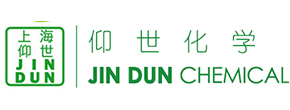The specific application of pyridinium p-toluenesulfonate in polymer synthesis
2024/5/17
After years of development, continuous optimization of process technology and improvement of production equipment, the production of p-toluenesulfonic acid pyridine salt, as an important organic compound, has shown its unique application potential in multiple fields.
Pyridine p-toluenesulfonate (PPTS) is a widely used acidic catalyst in organic synthesis, and its application in polymer synthesis is also quite important. The following are some specific applications of PPTS in polymer synthesis:
1. Hydroxyl protection and deprotection reactions
PPTS has important applications in the protection and deprotection reactions of hydroxyl groups, especially in the synthesis of polymers with specific microstructures. It can catalyze the acetalization reaction of hydroxyl groups, form protective groups, and catalyze reverse reactions to remove protective groups. This is crucial for protecting the sensitive sensory groups during polymer synthesis.
2. Control the stereoselectivity of polymerization reactions
PPTS can be used to control the stereoselectivity of polymerization reactions, especially in the synthesis of polymers with specific stereoconfigurations. By using PPTS as a catalyst, the microstructure of polymers can be precisely controlled, thereby affecting their physical and chemical properties.
3. Synthesize specific types of polymers
PPTS has also been applied in the synthesis of certain specific types of polymers, such as conductive polymers and biodegradable polymers. It can serve as a catalyst to promote specific types of polymerization reactions, thereby synthesizing polymers with specific functions.
4. Improve the efficiency of polymerization reactions
Due to the relatively weak acidity of PPTS, it does not have a significant impact on many acid sensitive functional groups, making it very useful in polymerization reactions that require mild reaction conditions. This helps to improve the efficiency of polymerization reactions and reduce the occurrence of side reactions.
5. Post treatment and modification of polymers
PPTS can also be used for post-treatment and modification of polymers. For example, it can be used to synthesize surface modifiers with enhanced water and oil resistance, which can be applied to the surface treatment of textiles and paper.
I believe that through continuous efforts and innovation, with the deepening of research, the application of PPTS in polymer synthesis will become more widespread, providing more possibilities for the synthesis of new high-performance polymers.
JIN DUN CHEMICAL has built a special (meth) acrylic monomer manufacturing base in ZHEJIANG province. This makes sure the stable supply of HEMA, HPMA, HEA, HPA, GMA with high level quality. Our special acrylate monomers are widely used for thermosetting acrylic resins, crosslinkable emulsion polymers, acrylate anaerobic adhesive, two-component acrylate adhesive, solvent acrylate adhesive, emulsion acrylate adhesive, paper finishing agent and painting acrylic resins in adhesive.We have also developed the new and special (meth) acrylic monomers and derivatives. Such as the fluorinated acrylate monomers, It can be widely used in coating leveling agent, paints, inks, photosensitive resins, optical materials, fiber treatment, modifier for plastic or rubber field. We are aiming to be the top supplier in the field of special acrylate monomers, to share our rich experience with better quality products and professional service.

